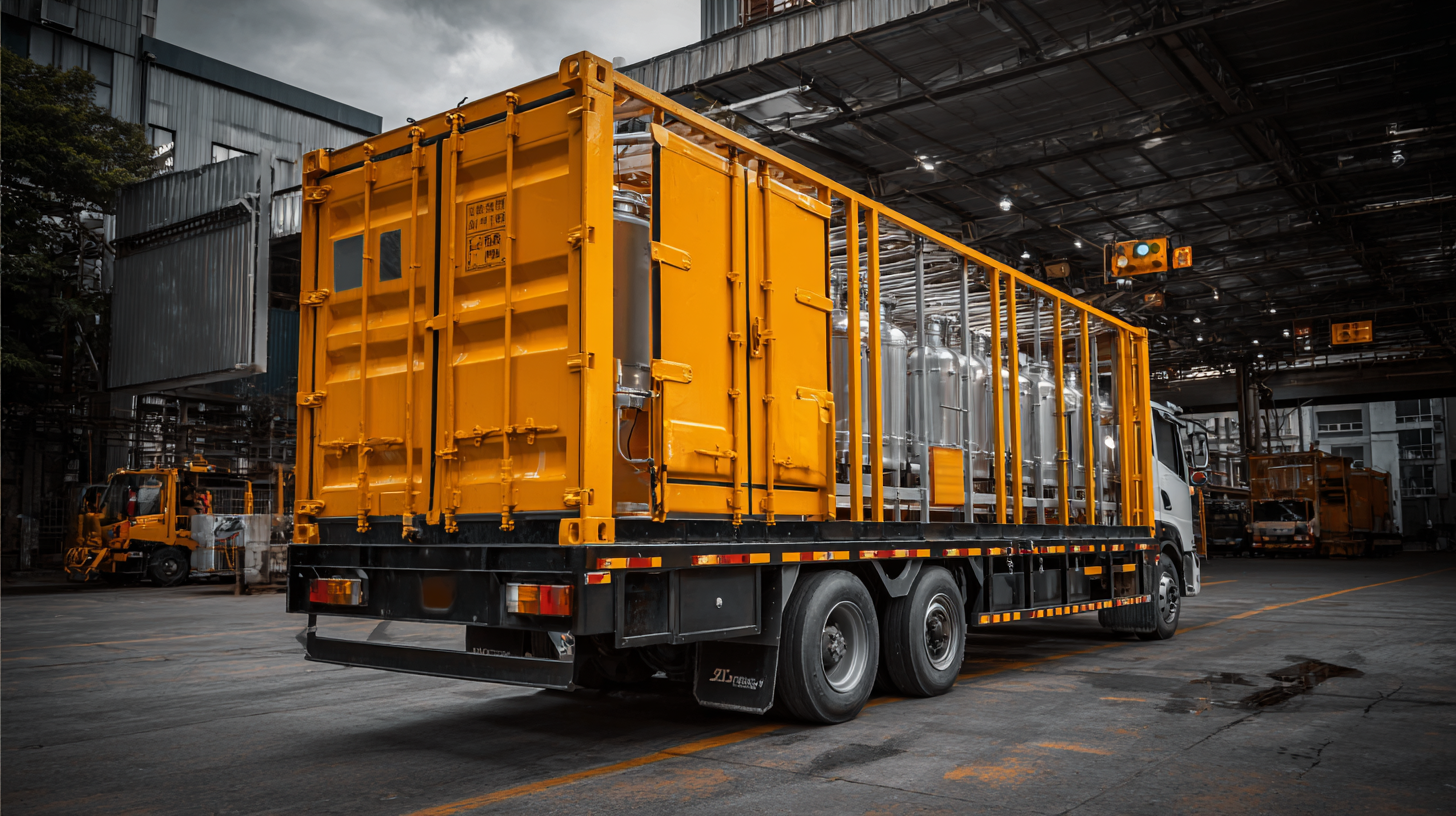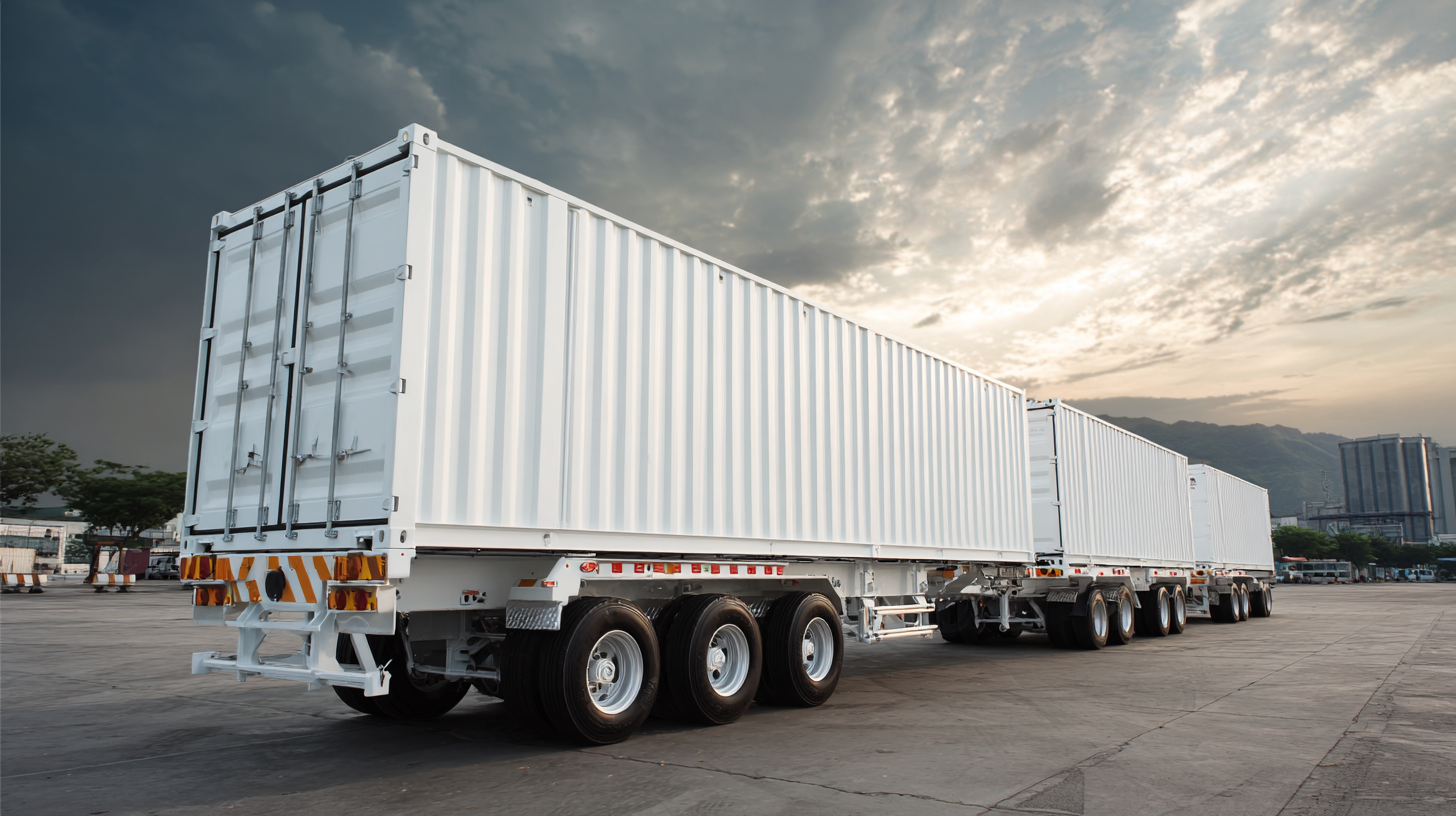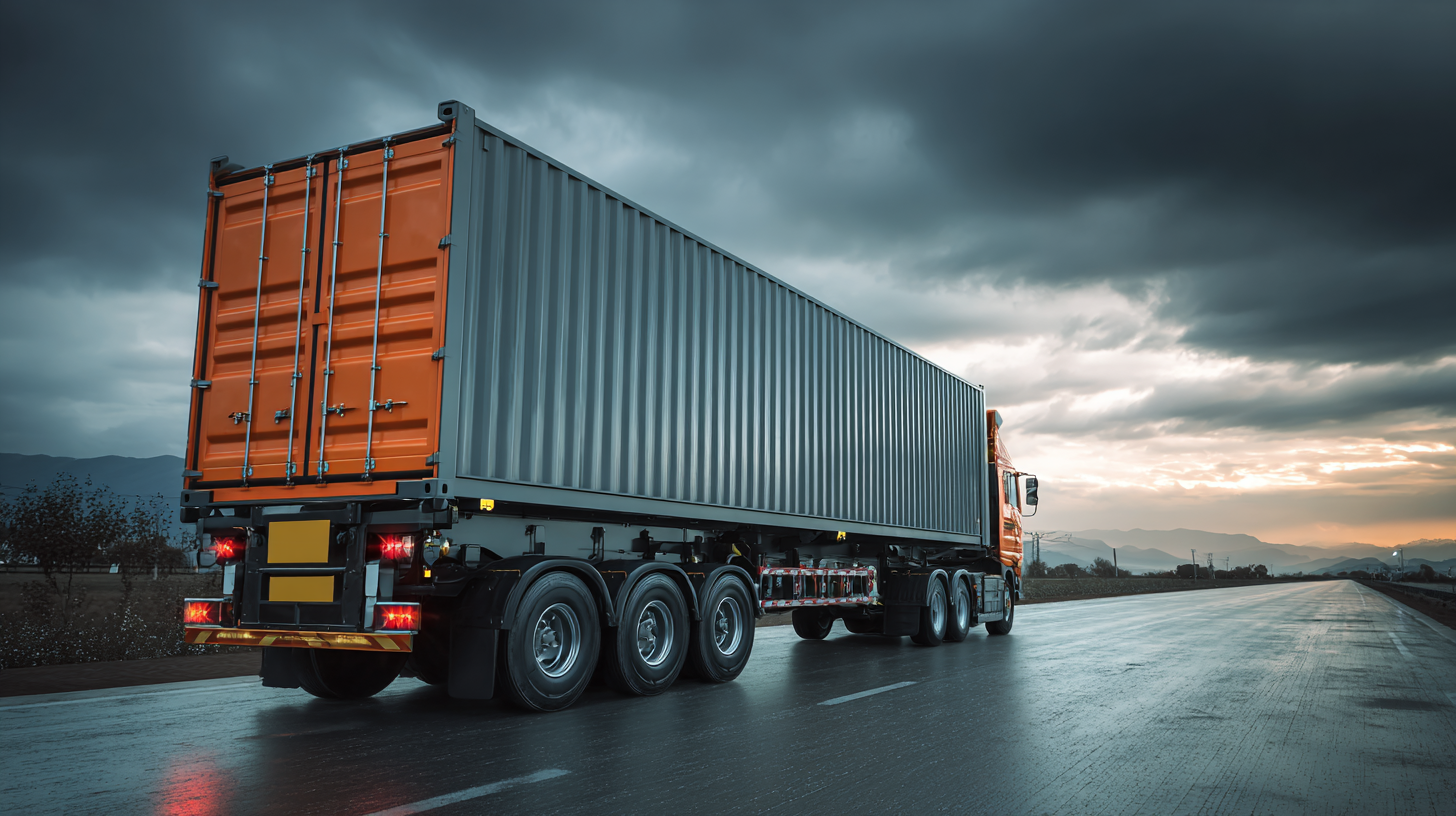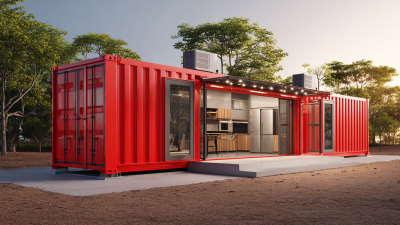Exploring the Benefits of Container Trailers for Efficient Transportation Solutions
The transportation and logistics industry has witnessed a significant transformation with the advent of container trailers, which have become pivotal in enhancing efficiency and reducing operational costs. According to a report published by the International Transport Forum, the use of containerized transport can lead to a reduction of approximately 30% in shipping costs while simultaneously decreasing carbon emissions by 15%. Container trailers facilitate intermodal transportation, allowing seamless transitions between different modes of transport, thus improving delivery times and service reliability.

Furthermore, the market for container trailers is projected to grow at a CAGR of 5% over the next five years, driven by the rising demand for flexible and scalable logistics solutions. As businesses strive to optimize their supply chains in a competitive landscape, the strategic integration of container trailers will undoubtedly play a crucial role in driving operational efficiencies and enhancing overall effectiveness in transportation solutions.
Understanding Container Trailers: An Overview of Their Functionality
Container trailers are essential tools in modern logistics, designed specifically to enhance the efficiency of transportation solutions. Their primary functionality lies in their ability to securely and effectively carry large shipping containers, allowing for seamless transfer between different modes of transport, such as ships, trains, and trucks. This versatility not only maximizes the utilization of cargo space but also simplifies the handling process, reducing the time and effort involved in loading and unloading goods.
The design of container trailers includes features like adjustable heights and compatibility with various container sizes, ensuring that they can accommodate diverse transportation needs. Equipped with robust suspension systems, they provide a smooth ride, minimizing the risk of cargo damage during transit. Furthermore, container trailers often come with advanced tracking and monitoring technologies, enabling real-time visibility of shipments. This capability helps logistics companies optimize their routes and manage their fleets more effectively, ultimately leading to improved delivery times and customer satisfaction.
Exploring the Benefits of Container Trailers for Efficient Transportation Solutions
| Feature | Description | Benefits |
|---|---|---|
| Versatility | Container trailers can be used for various types of cargo, making them suitable for different industries. | Allows businesses to transport diverse goods without needing specialized trailers. |
| Efficiency | Designed for optimized loading and unloading, container trailers enhance turnaround times. | Faster operations lead to reduced transportation costs and improved service delivery. |
| Cost-Effectiveness | Using container trailers can lower shipping costs due to their efficient design and capacity. | Improves profit margins for businesses by reducing overall transportation expenses. |
| Durability | Constructed to withstand harsh conditions, providing maximum protection to cargo. | Ensures cargo safety and reduces loss due to damage during transit. |
| Scalability | Easy to expand transportation capacity by adding more trailers as needed. | Allows businesses to scale operations up or down based on demand. |
Key Advantages of Using Container Trailers for Transportation Efficiency
Container trailers have emerged as a pivotal solution for enhancing transportation efficiency in today's logistics landscape. Their design allows for easy loading and unloading, enabling quicker turnaround times and reducing overall transportation costs. According to industry reports, intermodal shipping, which involves using container trailers alongside other transport methods, can improve cargo movement efficiency by up to 30%, ultimately optimizing supply chain performance.
The adoption of advanced technologies also plays a crucial role in enhancing the capabilities of container trailers. For instance, recent advancements in container transport software are set to streamline operations significantly, making it easier for logistics providers to manage and allocate resources. Furthermore, with the approval of specialized trailers, such as those for hydrogen storage, the industry is witnessing a shift toward sustainable transport solutions that could lead to reduced carbon emissions. This transformation not only meets regulatory requirements but also positions companies to capitalize on future market opportunities projected to grow significantly by 2035.
Choosing the Right Container Trailer for Your Shipping Needs
When it comes to selecting the right container trailer for your shipping needs, it's essential to evaluate your specific requirements, including the type of goods you are transporting, the distance, and your budget. Container trailers come in various sizes and configurations, and understanding the characteristics that matter most to you can streamline your decision-making process. For example, if you're moving large volumes, looking for trailers with higher weight capacities and enhanced loading features would be beneficial.
Beyond capacity, consider the ease of transport and compatibility with your vehicle. Some trailers are designed for specific uses, such as transporting vehicles or cargo over long distances. An ideal choice will ensure safety and efficiency during transit while also minimizing costs. With the right container trailer, you can enhance the logistics of your operations, meeting both personal and commercial shipping needs effectively.

Best Practices for Maintaining and Operating Container Trailers
Maintaining and operating container trailers efficiently is crucial for optimizing transportation logistics. Regular inspections play a vital role in ensuring that trailers remain roadworthy and safe. Operators should perform thorough checks on the structural integrity of the trailer, including the frame, flooring, and doors, to identify any potential weaknesses or damage. Additionally, it's essential to examine the braking system, tires, and lighting components to ensure they function correctly, as any malfunction can lead to unsafe driving conditions and costly delays.
Best practices also emphasize proper loading and securing of cargo. Overloading a container trailer can exceed weight limits and compromise safety, while improper load distribution may lead to instability during transit. It is advisable to adhere to weight guidelines specified by regulatory bodies and to use appropriate securing methods—such as straps, nets, or load bars—to prevent cargo shifting. By fostering a culture of operational awareness and ensuring that all personnel are trained in loading protocols, companies can significantly enhance their efficiency and reduce the risk of accidents on the road.
Container Trailer Utilization and Maintenance Efficiency
Innovative Technologies Enhancing Container Trailer Performance
 Container trailers are revolutionizing the transportation industry by
leveraging innovative technologies that enhance their performance and efficiency. According to a report by the
International Transport Forum, the integration of advanced
telemetry systems into container trailers can lead to a 15% increase
in operational efficiency through real-time monitoring and data analytics. These systems enable fleet managers to track
the location, temperature, and load conditions of containers, facilitating timely decision-making and minimizing delays.
Container trailers are revolutionizing the transportation industry by
leveraging innovative technologies that enhance their performance and efficiency. According to a report by the
International Transport Forum, the integration of advanced
telemetry systems into container trailers can lead to a 15% increase
in operational efficiency through real-time monitoring and data analytics. These systems enable fleet managers to track
the location, temperature, and load conditions of containers, facilitating timely decision-making and minimizing delays.
In addition, the use of lightweight materials and
aerodynamic designs in container trailer manufacturing has shown
promising results. A study by the Freight Transportation Research Center
highlights that adopting composite materials can reduce trailer weight by up to 20%,
which translates into lower fuel consumption and reduced carbon emissions. Furthermore, technologies such as automated
braking systems and adaptive suspension contribute to improved
safety and ride quality, enhancing the overall performance of container trailers on the road. These innovations not only
optimize logistics processes but also drive sustainability within the freight transport sector, making container trailers
a pivotal element in modern transportation solutions.
Related Posts
-

Transform Your Space: Innovative Uses for Storage Shipping Containers in Urban Living
-

Exploring Innovative Uses for Construction Containers in Modern Architecture
-

Exploring the Versatility of Storage Shipping Containers for Home and Business Solutions
-

The Rise of Construction Containers Revolutionizing the Building Industry Amidst Sustainability Demands
-

The Ultimate Guide to Choosing the Right Movers Containers for Your Next Move
